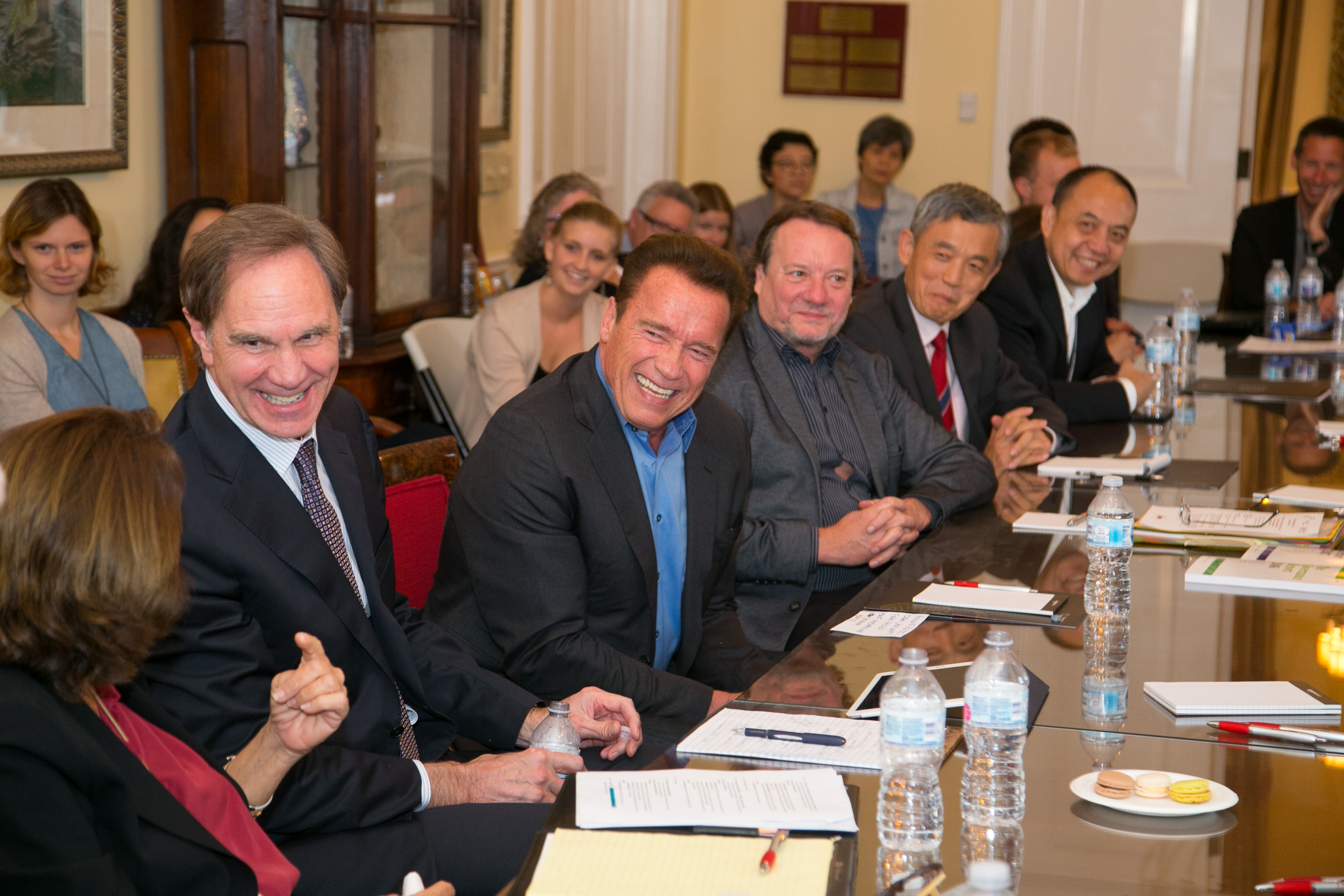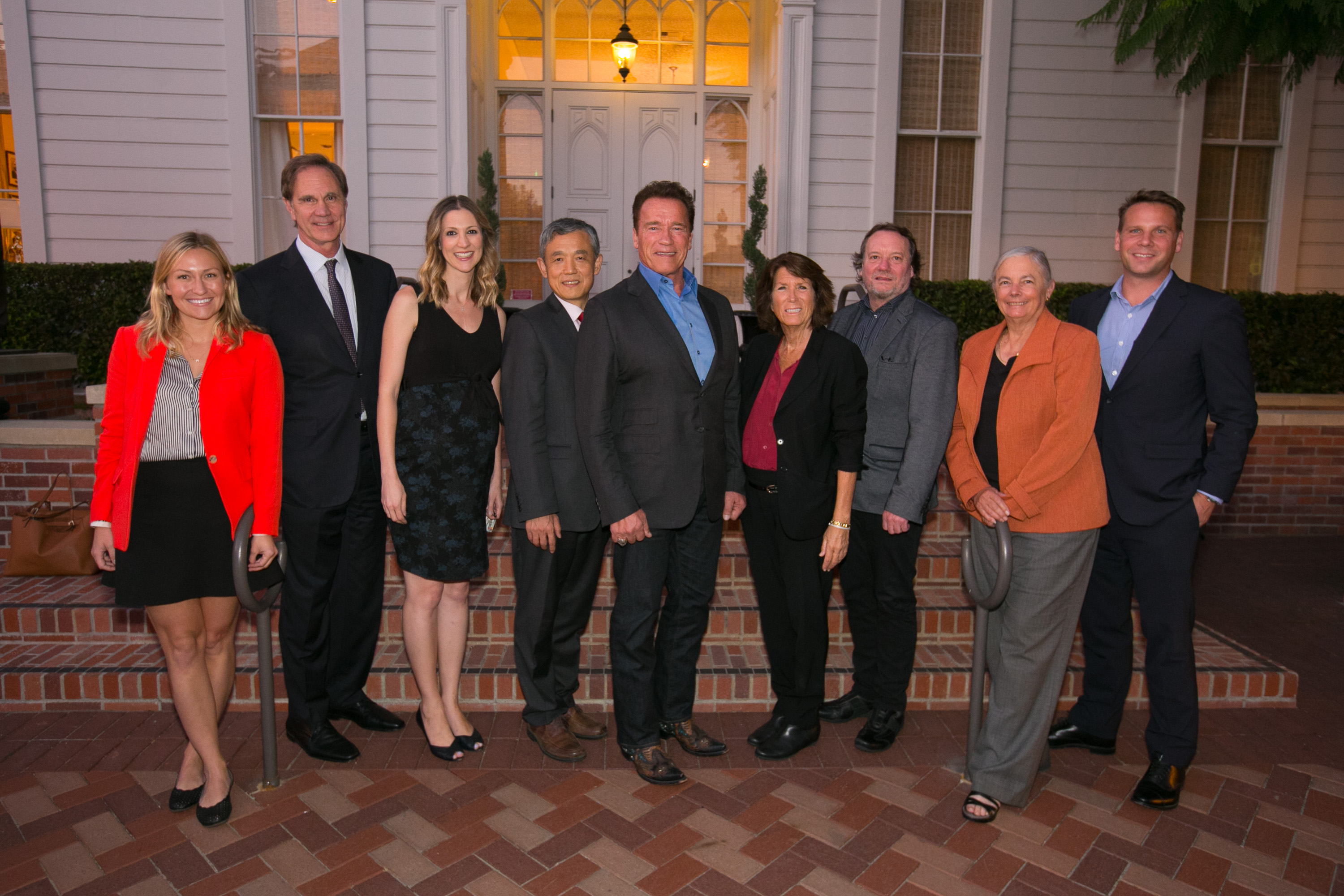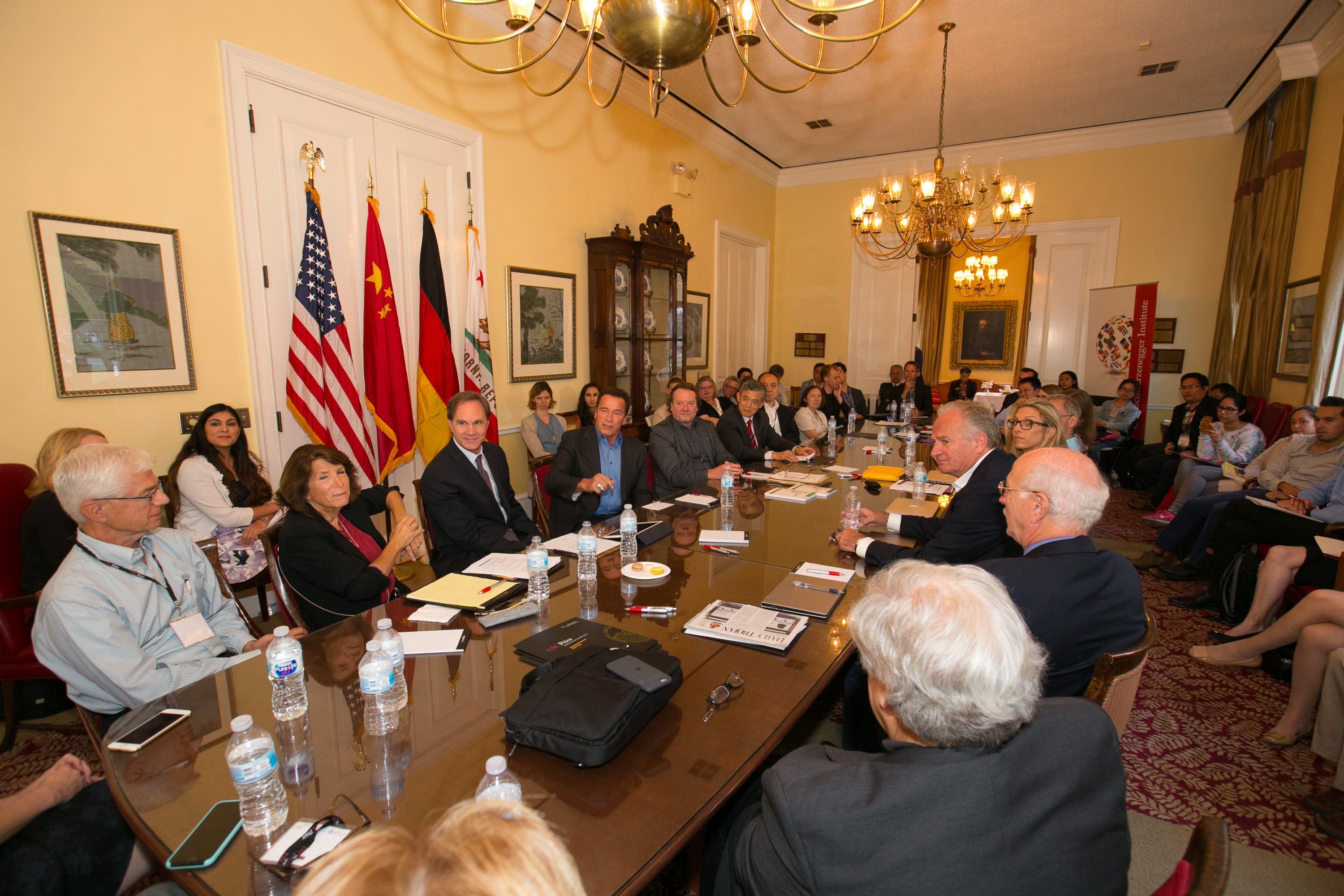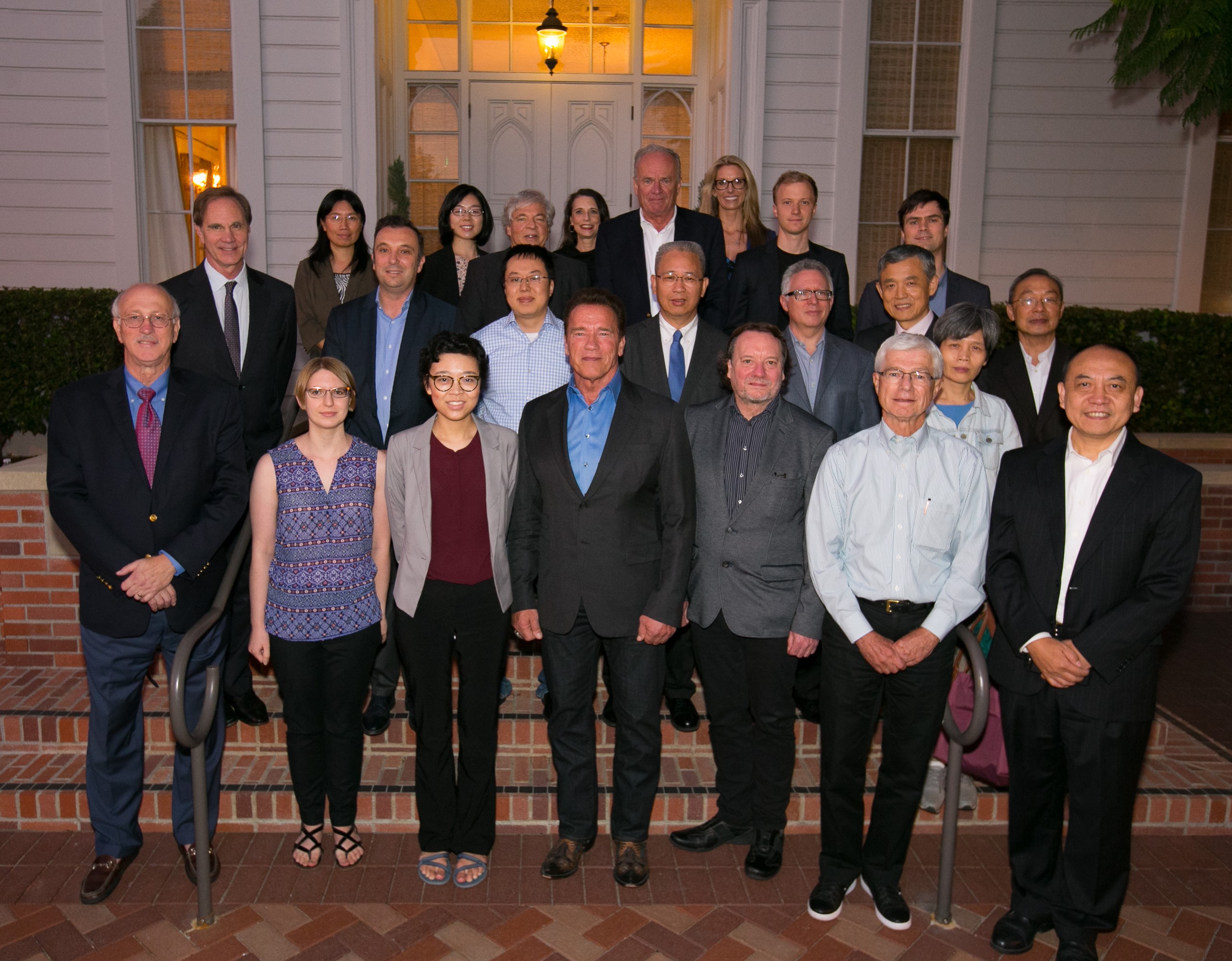Governor Arnold Schwarzenegger visited the USC campus on October 5th to attend the third meeting of the Energy Transition Forum, the multi-year collaboration between USC's Price School of Public Policy, the Hertie School of Governance and Tsinghua University's School of Public Policy and Management that the USC Schwarzenegger Institute hosted. The former Governor enjoyed meeting with representatives of the three prestigious public policy schools and discussing ongoing research with a number of their leading energy and climate policy professors.
Governor Schwarzenegger began the meeting by thanking USC Dean Knott who was the impetus for this global academic collaboration, Dean Emeritus Dan Mazmanian and Schwarzenegger Institute Global Director Bonnie Reiss for their leadership in building the research collaboration and thanked Tsinghua University Dean Xue Lan and Hertie School Deans Helmut Anheier for being such committed partners these past three years. Governor Schwarzenegger went on to praise the research collaboration and the important advances that it is producing for policy makers throughout the world. He explained how, during his tenure as governor, the work of academics regularly impacted his administration's decision making and helped influence a number of the important legislative initiatives, from the million solar roof initiative to the landmark global warming solutions act. He also thanked both global universities for hosting the first two energy forums.
The former Governor also added that he can be called many things – "Arnold," "Arnie," "Terminator," "Governator," "Schnitzel" – but never a "self-made man." He said this to make the point that success is rarely achieved by one person alone. Instead collaboration like the Energy Transition Forum typically lead to the ground breaking successes that improve society and lives. Governor Schwarzenegger stressed that the work coming out of the USC-Hertie-Tsinghua collaboration has the potential to make the world cleaner, safer and more energy efficient and in doing so protect many of the lives impacted by pollution and climate change. Institute director Reiss was especially proud of the work of the faculty involved in this 3-year collaboration, and singled out the USC Price team for their ongoing commitment, while also acknowledging the synergy of the collaborations that was evident by the exchange of ideas at this forum.
(All of the presentations from the Forum can be seen and downloaded here)
The USC meeting follows previous meetings in Berlin and Beijing hosted respectively by the Hertie School and Tsinghua University. Presentations and conversations covered a wide range of issues including meeting COP 21 next steps, cap and trade systems, renewable portfolio standards, the role of sub national governments in addressing climate change and compensating the 'looser' of climate action (i.e. coal miners). Well known environmentalist and former California State Senator Fran Pavley and Air Resources Board Chair Mary Nichols both attended the Forum and provided a practitioner’s point of view on many of the issues being discussed. They both explained to the gathered academics the many challenges that politicians and policy makers face when they attempt to regulate pollution and incentivize the transition to renewable energy and environmental protection. One of the principles of the Institute is while local action is important so too is global collaboration. The Schwarzenegger Institute is looking forward to continuing these important collaborations.




